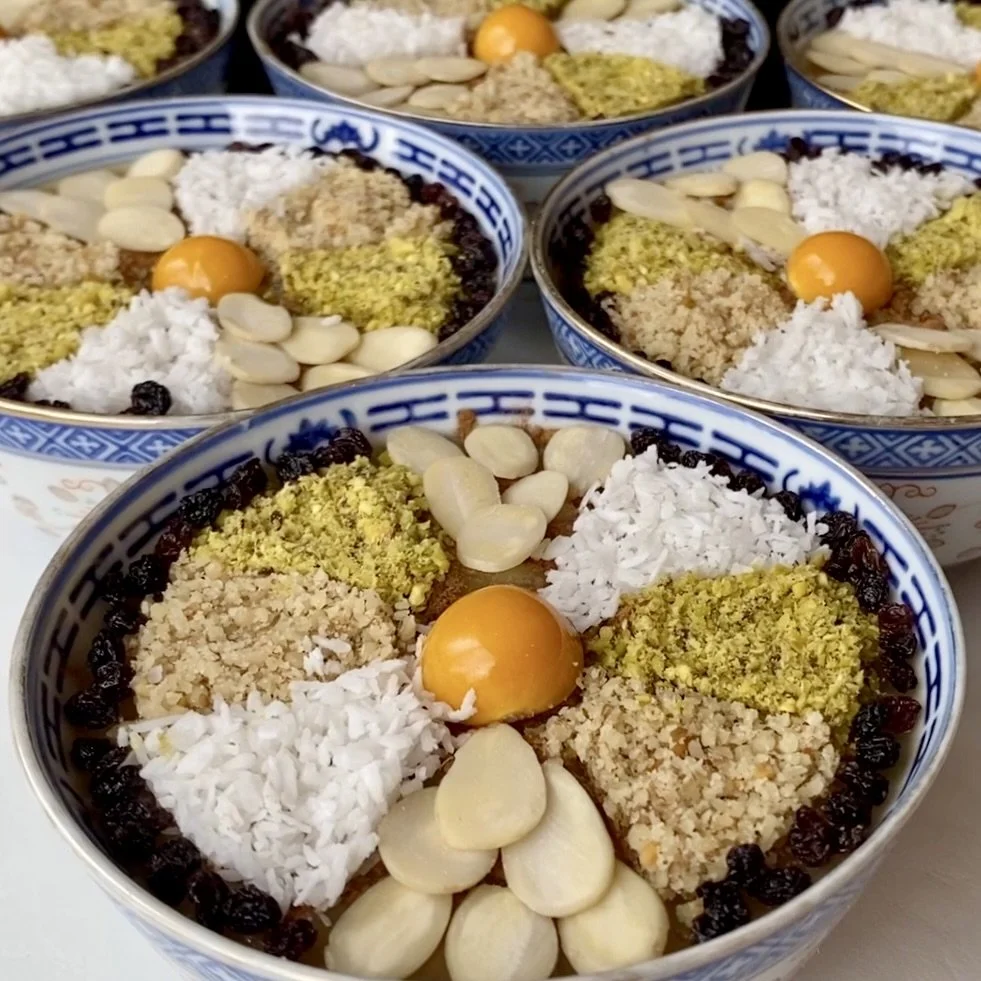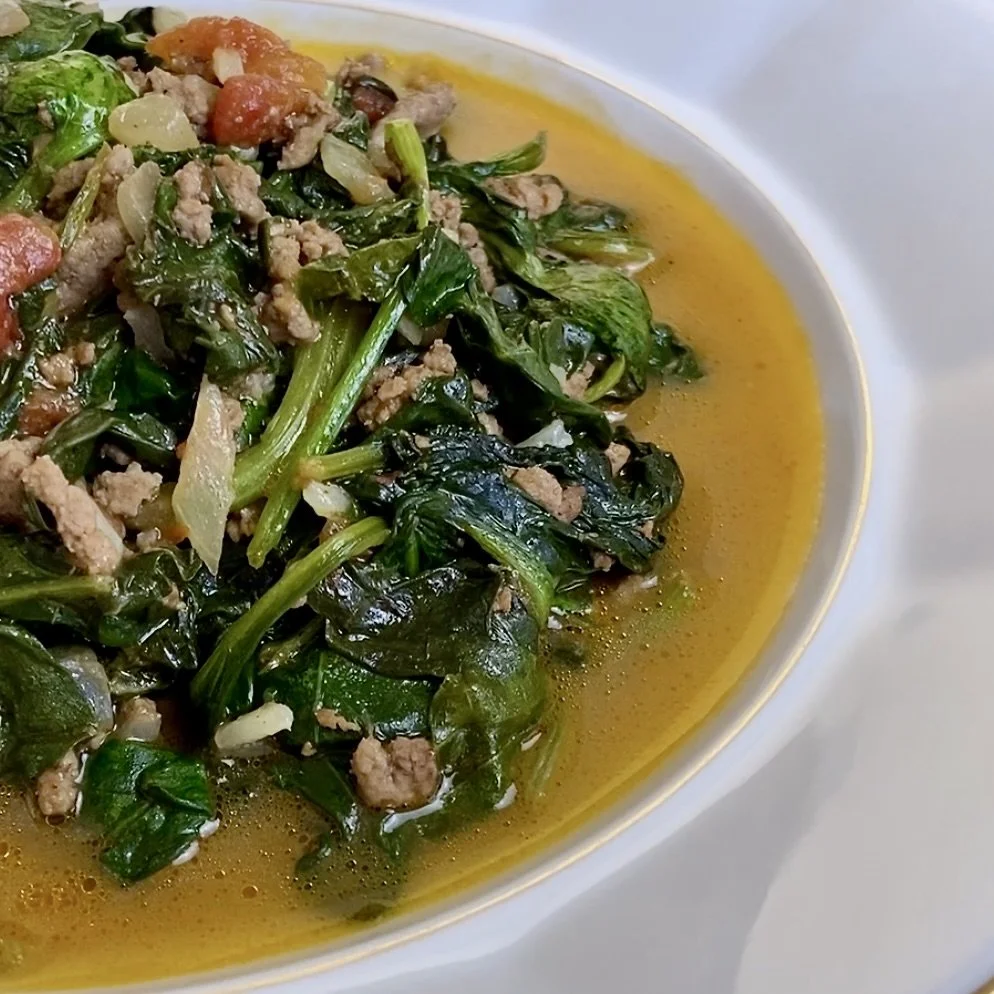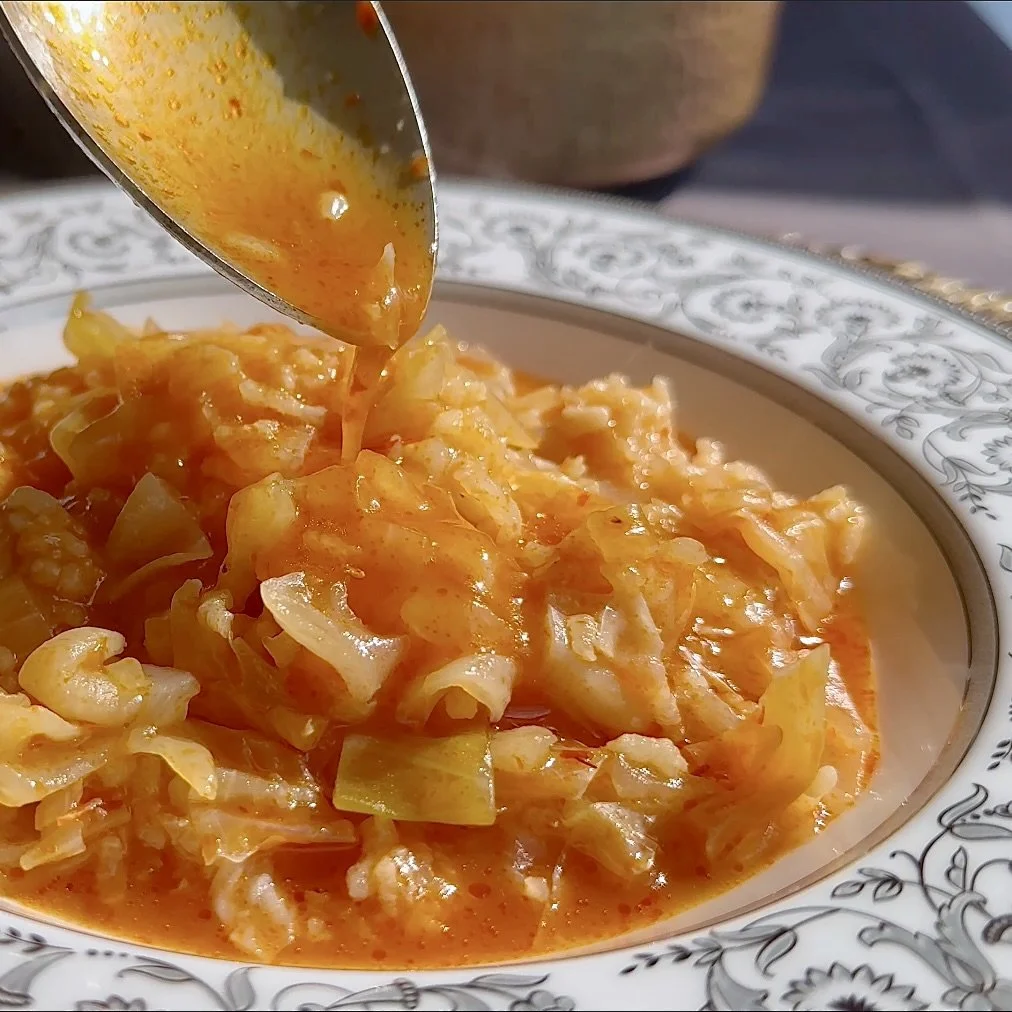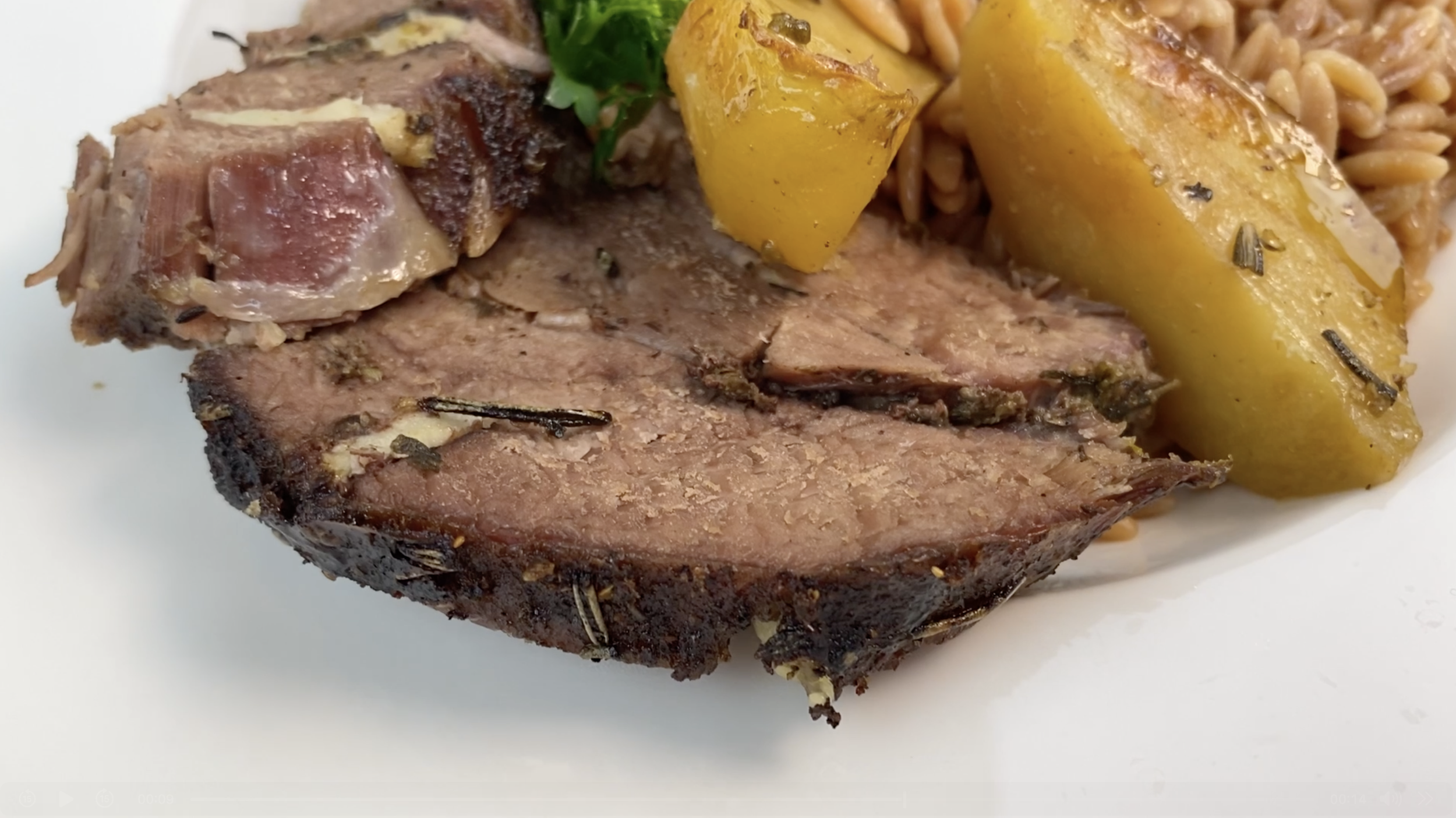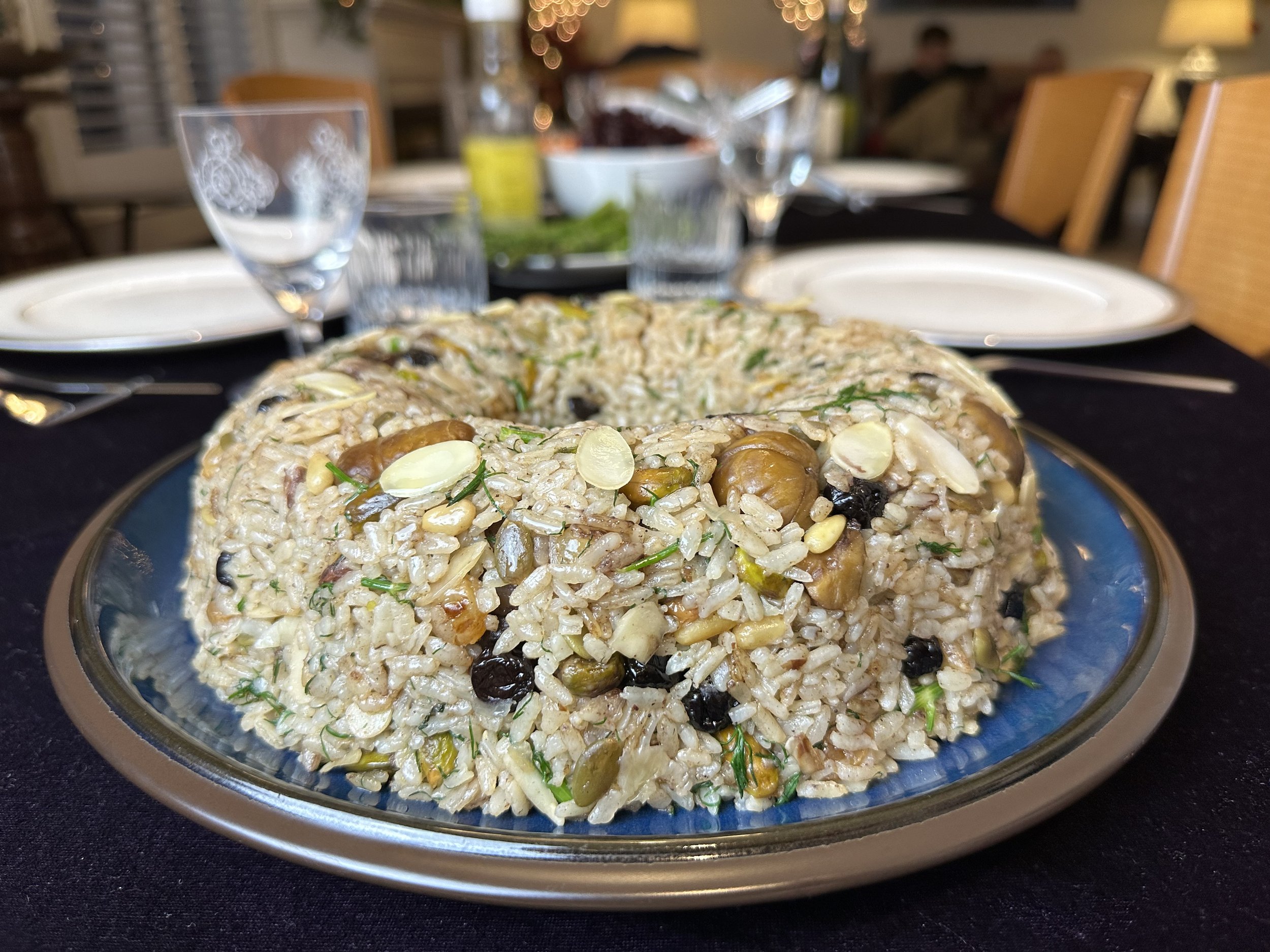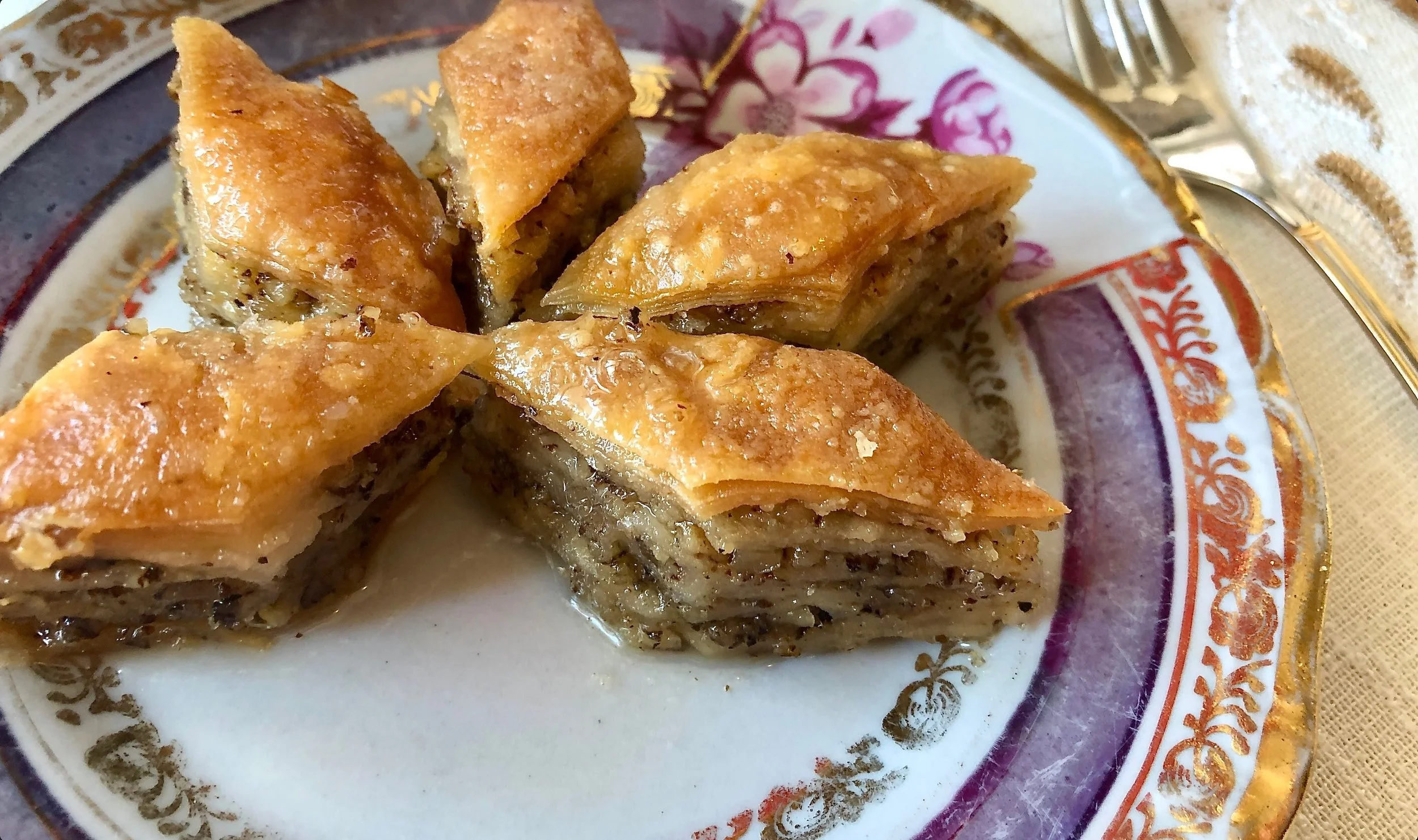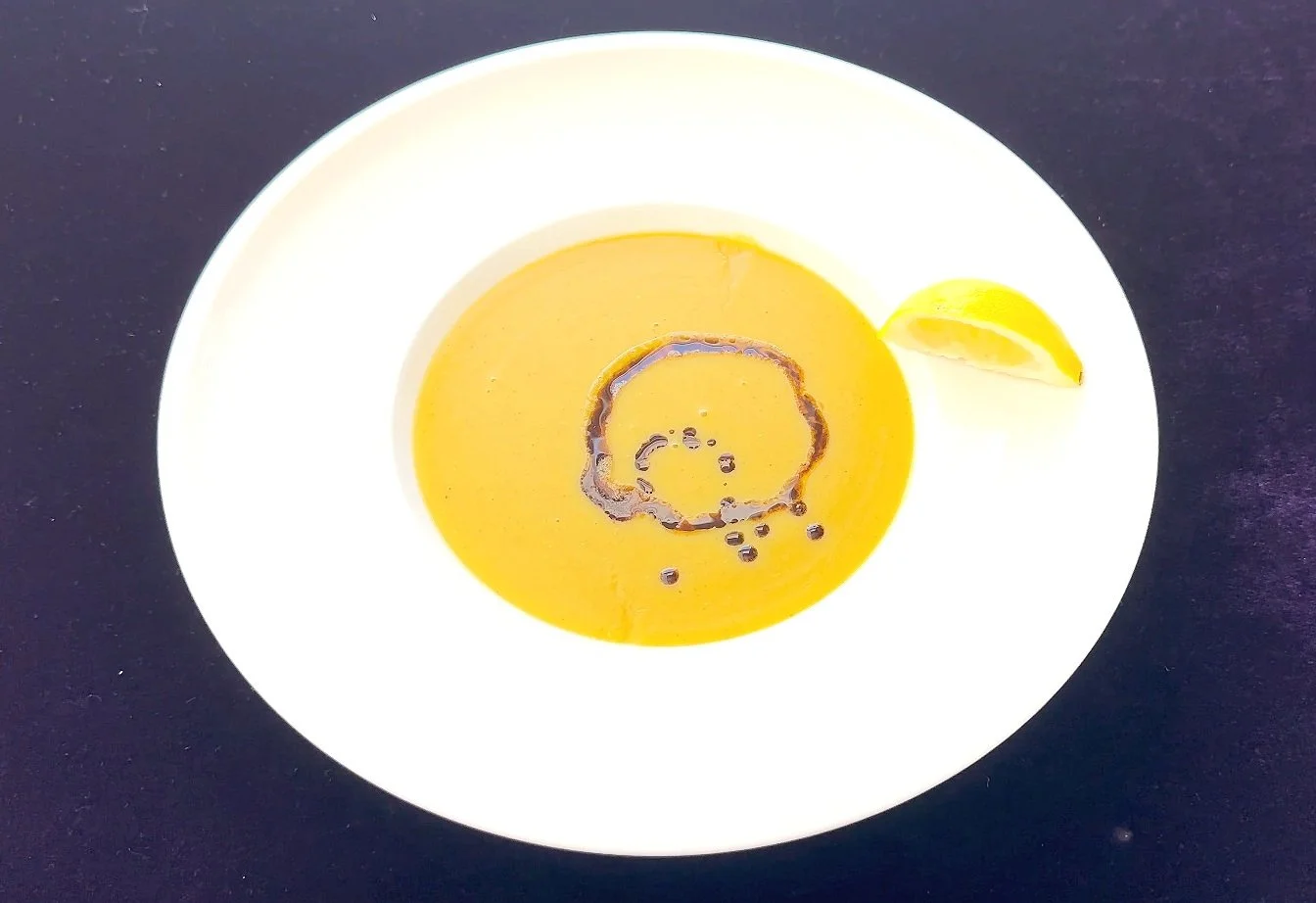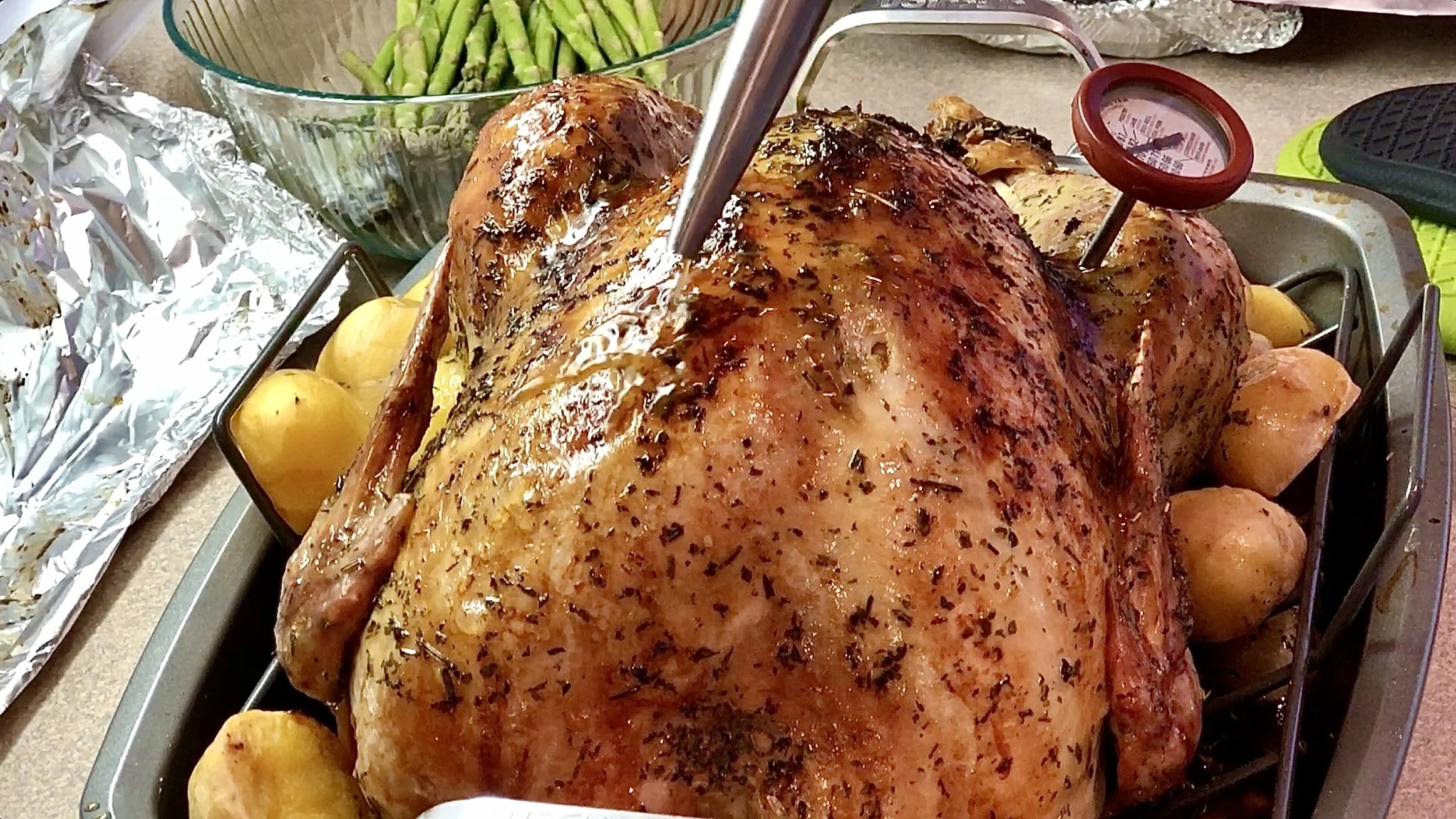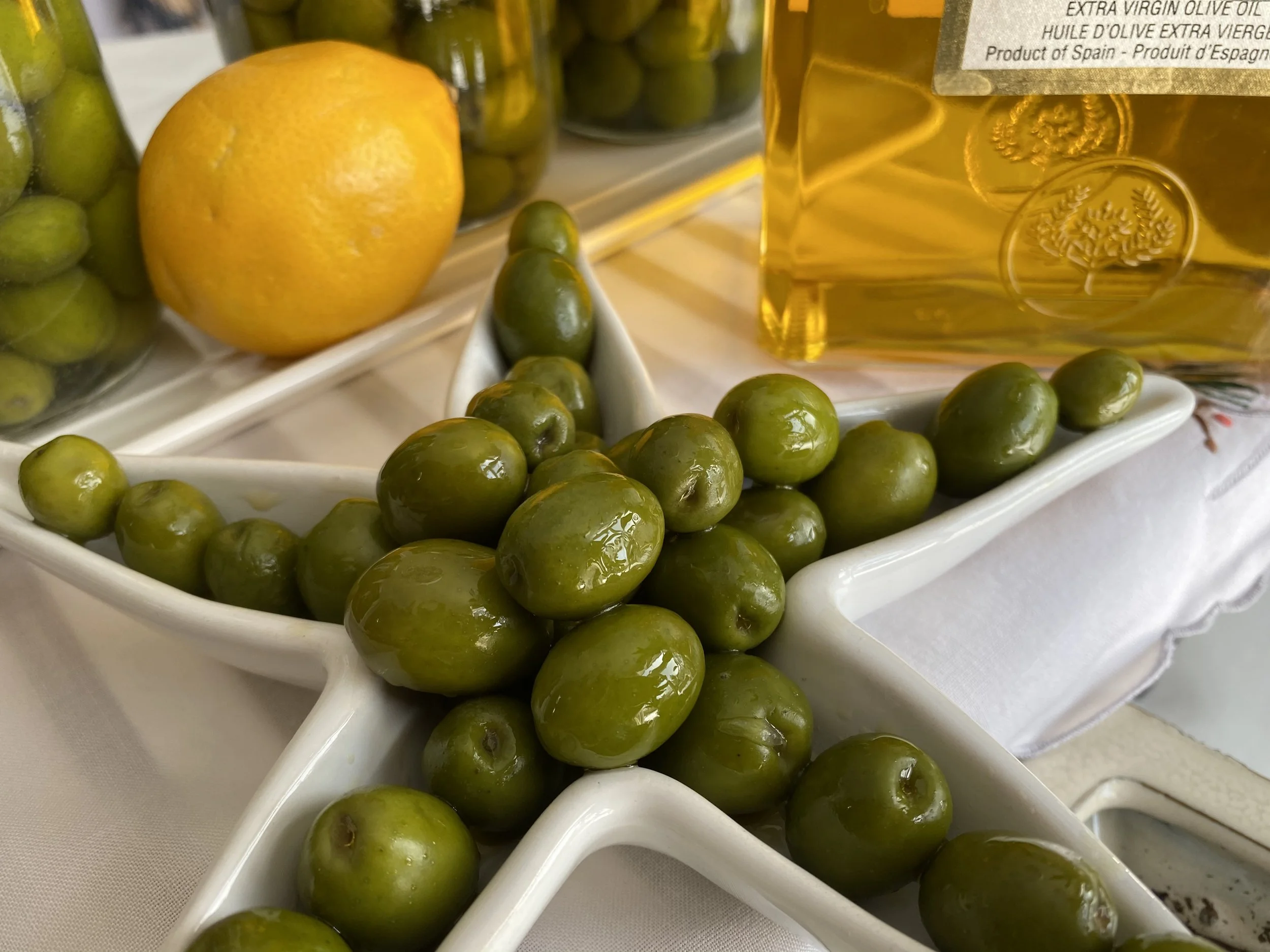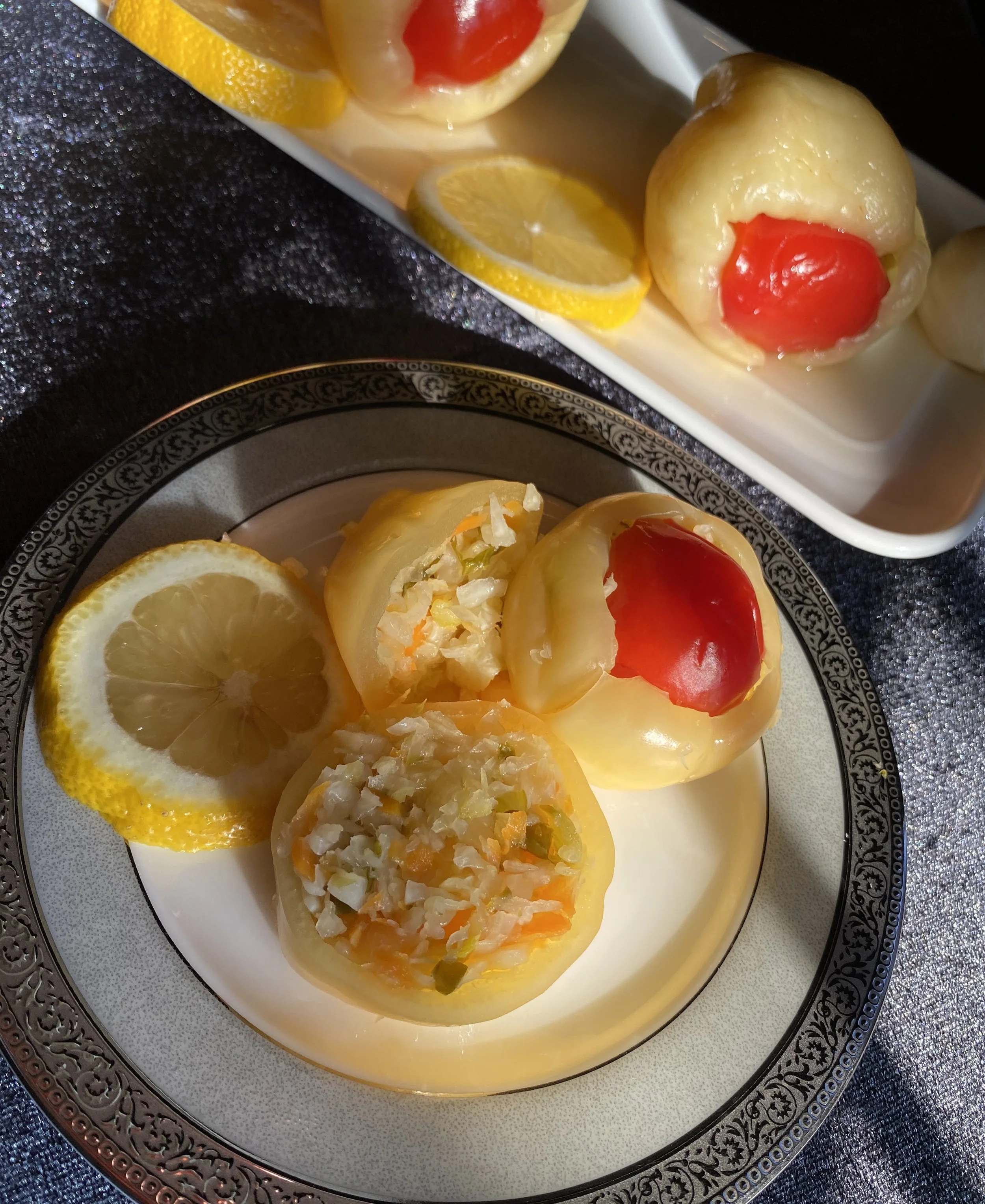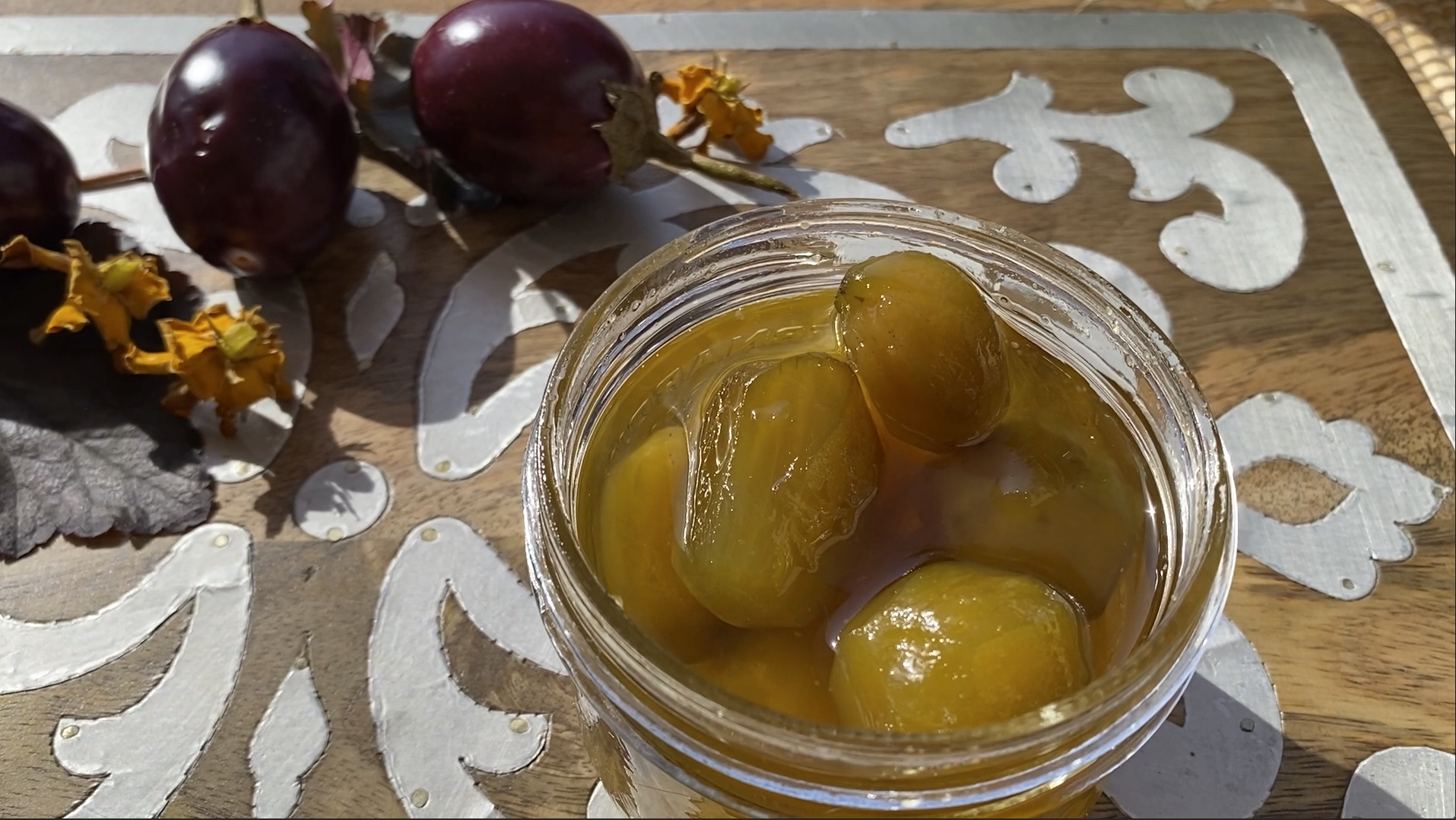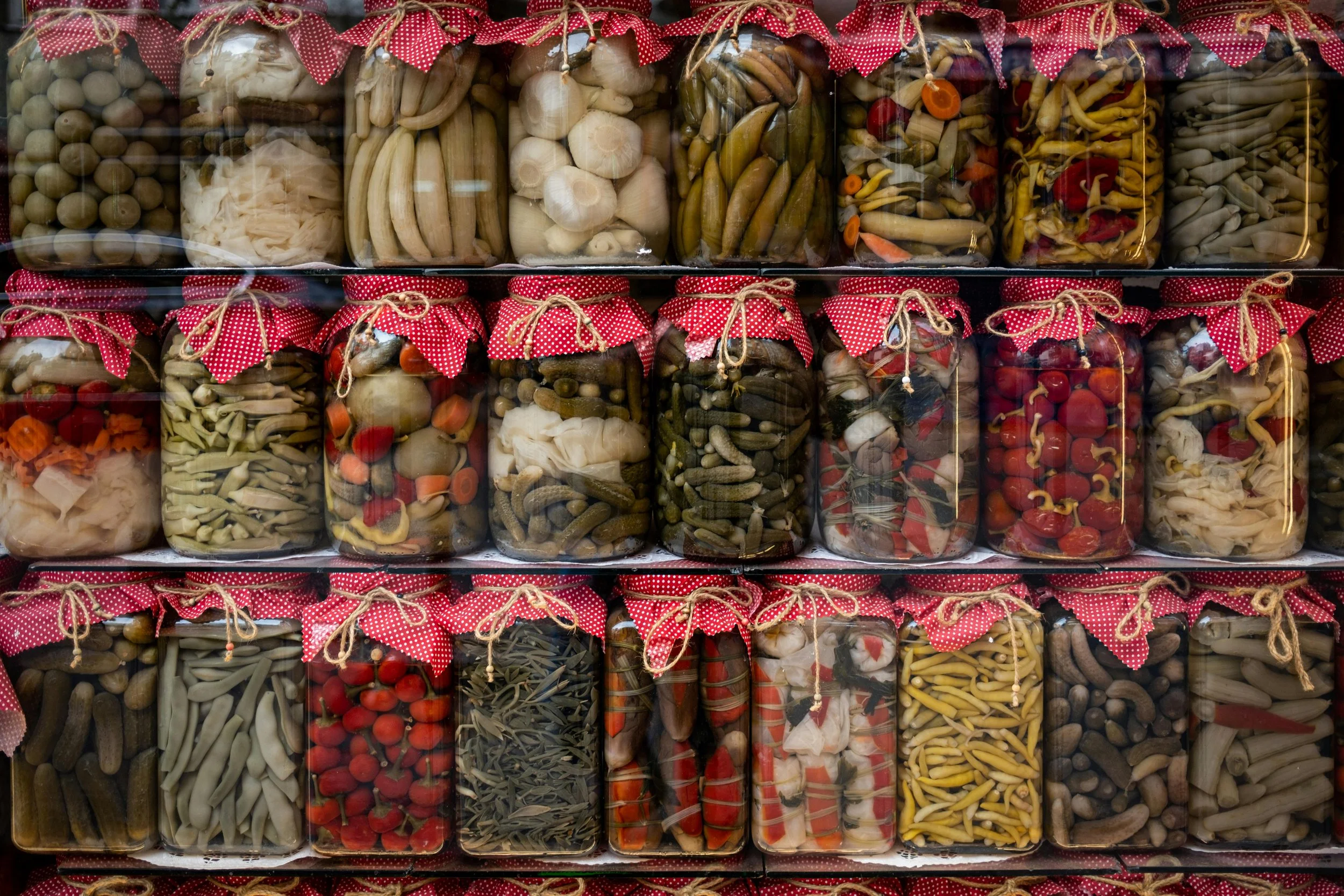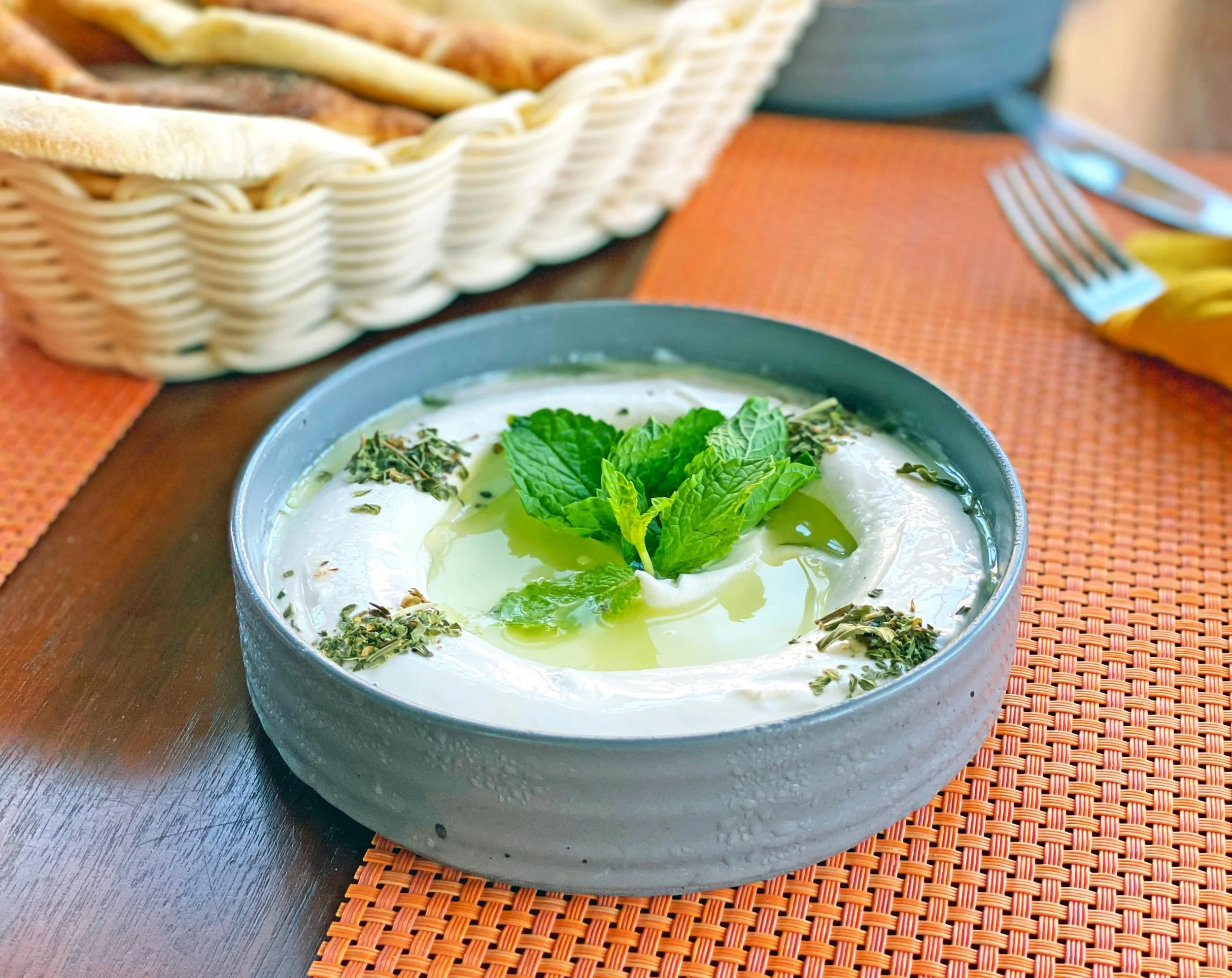İmam Bayıldı / Braised Eggplants in Olive Oil
IMAM BAYILDI: THE DELICIOUSLY TENDER LEGEND OF EGGPLANT
Note: By clicking on this video, you allow third parties (YouTube and Google) to access your data. Visit our privacy policy for more info.
İmam Bayıldı translates directly to “the imam fainted”, and like many beloved recipes in ancient cuisines, it comes wrapped in legend.
Some say the imam fainted from sheer delight after tasting this tender, olive oil–bathed eggplant for the first time. Others claim he swooned from shock—when he learned just how much of his expensive olive oil had been used to prepare it. As the tale goes, his young wife had learned the recipe from their neighbour and cooked it lovingly, night after night. After a week, when the imam noticed the pantry nearly empty and asked where all the oil had gone, she answered without hesitation: “Into the eggplants.” And down he went.
Whether he fainted from flavour or frugality, one thing remains true: İmam Bayıldı is a dish worth remembering. A masterpiece of plant-based cooking, it’s been a summer favourite for centuries. Short, round and tender eggplants are gently boiled (instead of fried in the traditional way), then filled with a generous mixture of softened onions, garlic, tomatoes, and green peppers. They’re nestled into a wide pot, bathed in olive oil and simmered slowly until meltingly tender.
This dish is best prepared at the end of summer, when sun-ripened vegetables are at their peak—sweet, bright, and full of depth. Served cold or at room temperature, İmam Bayıldı is the kind of dish you linger over, whether at a lively table or during a quiet solo supper. The subtle bitterness of eggplant, the sweetness of onions, and the vibrant acidity of tomatoes come together like the colours of a slow-setting sun.
And perhaps, after your first bite, you’ll understand the imam’s reaction all too well.
Ingredients
For Pre-Cooking the Eggplants
1 kg (7 medium-sized) eggplants
2-3 L water
1 tbsp salt
For the Stuffing
400 g (1 large) onion
140 g (~7-8) garlic cloves
500 g tomatoes
250 g sweet green peppers
2 tbsp sugar
½ tbsp salt
For Cooking
½ cup olive oil
1 cup water
2 tsp sugar
1 tsp salt
Directions
PREPARING THE EGGPLANTS
Wash the eggplants and clean the meaty parts of the stems, keeping the woody caps on for presentation.
Peel them lengthwise into alternating black-and-white stripes.
Make four deep lengthwise slits along the white stripes to hold the stuffing.
PRE-COOKING
Boil 2-3 L of water with 1 tbsp salt.
Add eggplants and boil 5-7 minutes until softened.
Transfer to cold water to cool, then gently squeeze out excess water.
PREPARING THE STUFFING
Peel, wash, and thinly slice the onion and garlic.
Place in a bowl, sprinkle with ½ tbsp salt and 2 tbsp sugar, and rub for 1 minute to soften.
Wash and deseed the green peppers, then slice thinly.
Blanch tomatoes in boiling water for 1 minute, shock in cold water, then peel and slice into thin rounds.
Add peppers and tomatoes to the bowl and gently mix.
STUFFING THE EGGPLANTS
Use your hand to gently open each slit and stuff the mixture evenly into the eggplants.
Nestle the stuffed eggplants into a wide, shallow pot.
Spread any remaining stuffing between them.
Pour over the olive oil, water, and sprinkle with the salt and sugar.
COOKING
Cover the pot and bring to a boil on medium heat.
Reduce heat to low and simmer 60-70 minutes, or longer if needed, until eggplants are meltingly tender.
RESTING
Let the dish rest 3-4 hours, or overnight, to fully absorb flavours and cool.
Serve at room temperature or chilled.
SERVING
Imam Bayıldı is a summer evening treasure —fragrant, mellow, and deeply satisfying. The eggplants soak up every note of garlic, sweet onion, and olive oil, with just a hint of bitterness and acidity to balance it all. It’s a dish to linger over, preferably under a tree with loved ones, or savoured slowly with a glass of chilled ayran, a slice of fresh crusty bread, or warm rice pilav.
[Notes from the Kitchen]
Choose short, stout and tender eggplants: They cook more evenly and look more elegant when stuffed.
Traditional recipes call for frying the eggplants, but boiling makes them lighter and easier to digest without sacrificing flavour.
Salt in the pre-cooking water draws out the bitterness of eggplant.
Use ripe, in-season tomatoes for best results. Out-of-season tomatoes can dull the dish’s natural sweetness.
Make ahead: Imam Bayıldı (like all olive oil dishes in Turkish cuisine) tastes even better the next day! These kinds of dishes are perfect for meal prep.
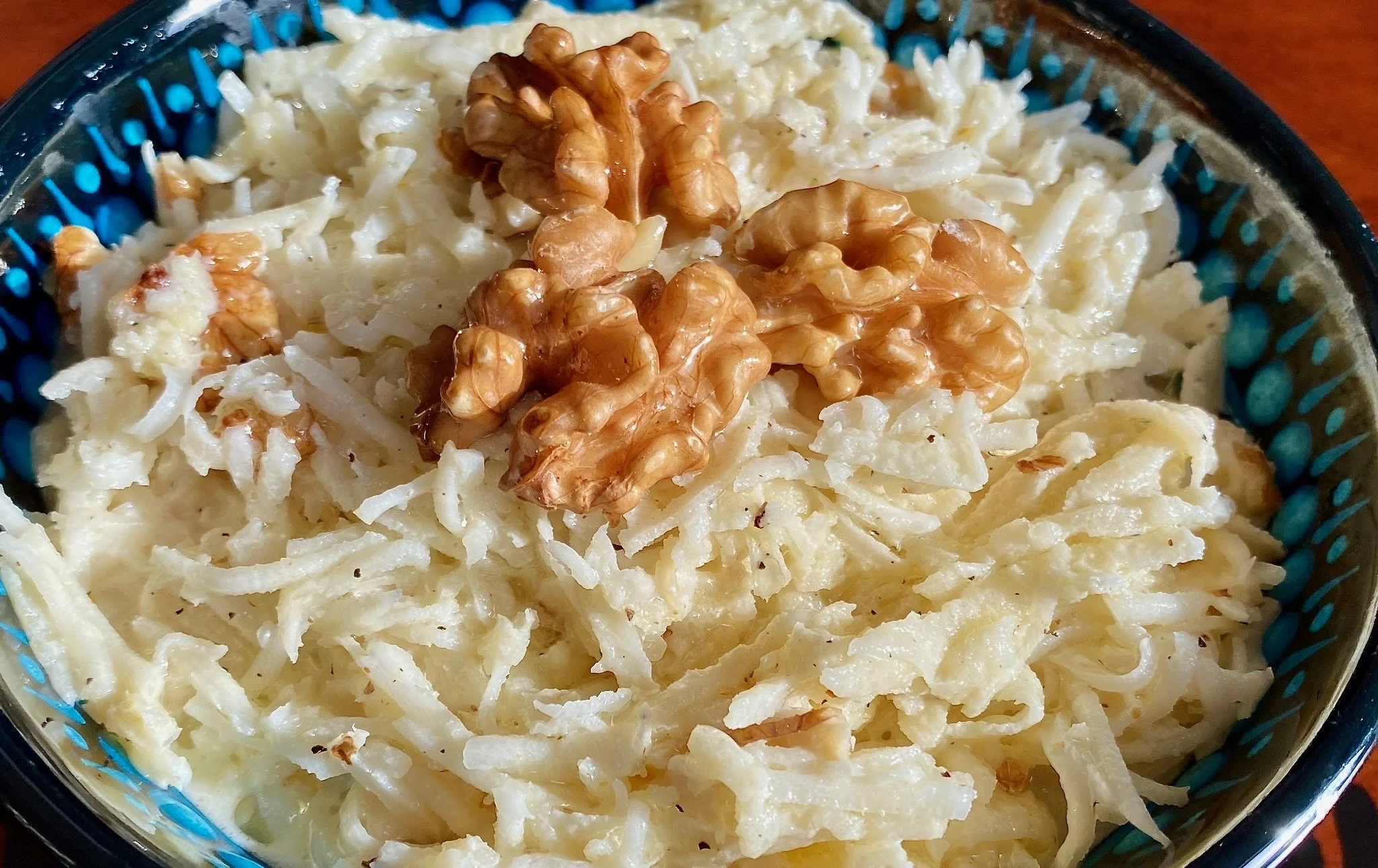
There is a particular kind of hesitation that happens in front of the produce wall…
Somehow, a holiday about light, generosity, and togetherness became the time of year we panic-buy our way into proving we care…
What if the healthiest thing you could do is stop believing everything in the grocery aisle that calls itself “super”?
Discover how baklava evolved from early Central Asian layered pastries to the refined Ottoman masterpiece we know today…
Explore how yoğurt weaves through Turkish cuisine, from soups and mezes to mains, pastries, and desserts... the timeless taste that ties every meal together.
Science confirms what our grandmothers always knew: sitting down together is the recipe for lifelong health.
Eby’s Golden Guernsey milk is the ‘secret’ ingredient that makes our sütlaç, puddings, pochas, sauces, and soups unforgettable…Reminding us why real quality matters.
From jars of tangy probiotic pickles to real fruit leathers and vitamin-rich tarhana soup mix, we share how a Mediterranean family in Canada prepares their pantry for the long winter, with recipes rooted in tradition, adapted for today.
Istanbul’s cuisine is not a story of invention but of conversation, where Thracian settlers, Greek tavern-keepers, Armenian bakers, Jewish exiles, Kurdish migrants, and Ottoman courts all left their mark on the city’s table.
Preserving food wasn’t a hobby. It was survival, celebration, and creativity all at once.
Mediterranean diet is about memory, movement, and meals that satisfy body and soul.
Before it was a health trend, yogurt was medicine, snack, and staple: fermented on horseback, shared across empires, and still echoing in every spoonful today.
Shared meals don’t just feed the body. They knit our hearts together, heal loneliness, and keep old stories alive at the table.
What if tradition wasn’t about perfection or the past… but about adapting wisdom for a better life today?
From leaves to molasses, from sour to sweet — the grape vine carries 10,000 thousand years of Anatolian wisdom into every season.
More than flavour, preservation is geography, memory, and thousands of years of learning to listen to the land…
Before there were books or blueprints, there were mothers—teaching us how to live, protect, and remember.
The future of your health — and the planet — might depend on something as simple as choosing a ripe tomato in season…

